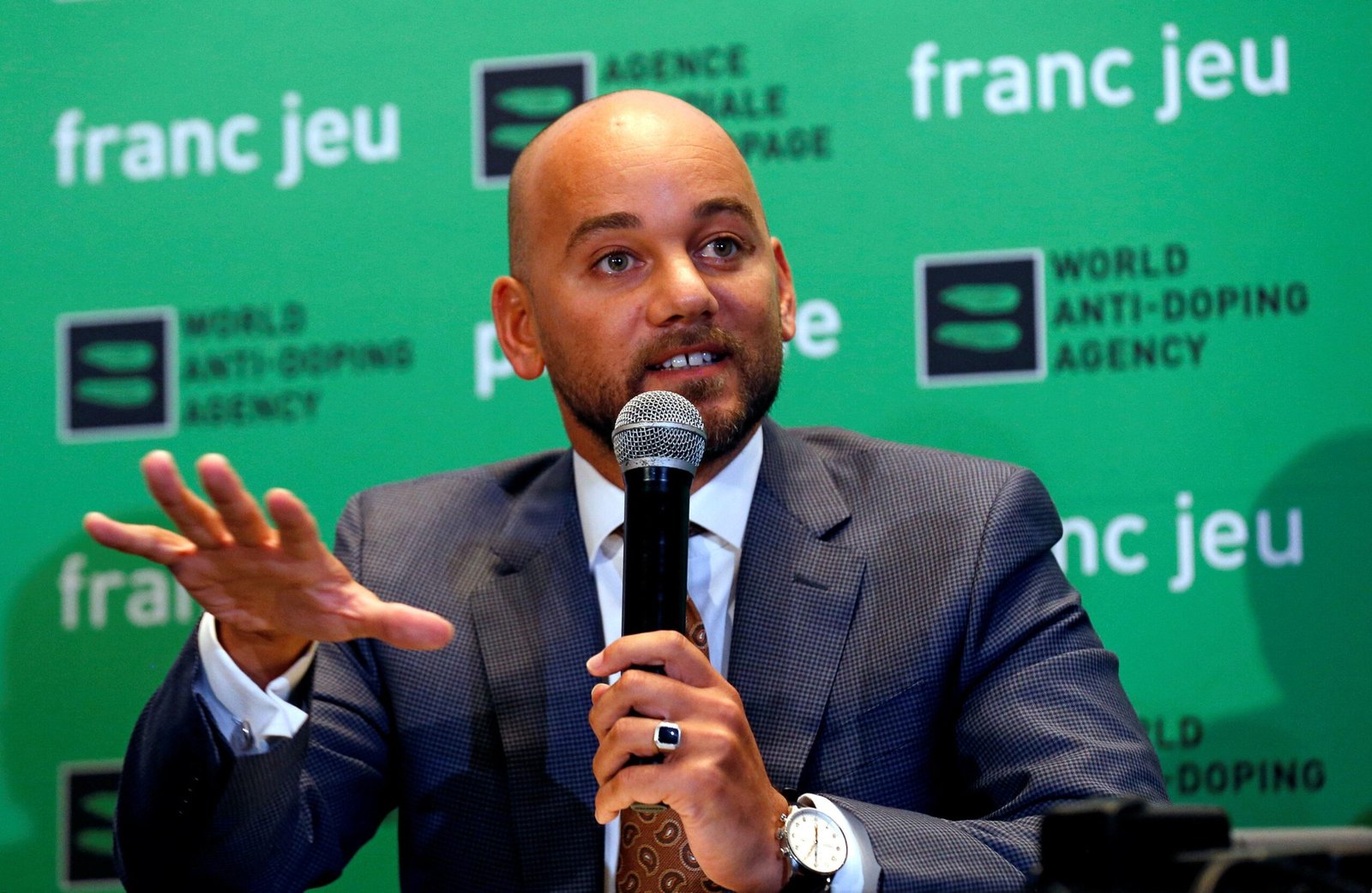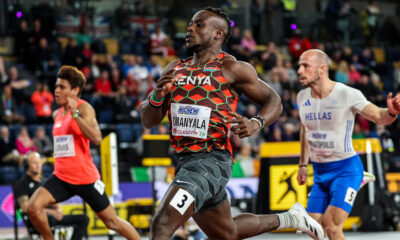• Nigeria was ruled out of the sprint relay at the world championships after Sprinter Blessing Okagbare’s ten years ban was extended to 11 years for a doping violation
• Penalties for a doping violation vary greatly between sports with a single violation resulting in a ban from sports competition of up to 2 years while a second violation may result in a lifetime ban.
• World championships are set to be held from July 15th to July 24th in Oregon
Nigeria has been ruled out of the sprint relay at the world championships after Sprinter Blessing Okagbare’s ten years ban was extended to 11 years for a doping violation

Nigeria’s Blessing Okagbare reacts after winning her race in the women’s 100m heats during the Tokyo 2020 Olympic Games at the Olympic Stadium in Tokyo (Photo by Giuseppe CACACE / AFP)
According to The Athletics Integrity Unit Okagbare was charged with evading sample collection, and tampering or attempted tampering with the doping control process.
She was suspended during last year’s Tokyo Olympics after failing a drug test.
Six days after she had evaded sample collection on June 13, 2021, she competed in the relay event at Nigeria’s Olympic trials, helping her team qualify for the world championships.
The results have now been disqualified due to Okagbare’s involvement and Nigeria has therefore lost its potential qualification place in the women’s 4x100m relay at the world championships in Oregon in July.
The Athletics Integrity Union Head Brett Clothier said in a statement that they have repeatedly warned teams on the same and that such incidents affect team-mates who have trained hard and worked honestly for their results
“Over the years, we have repeatedly seen how one person’s actions adversely affect team-mates who have trained hard and worked honestly for their results,” AIU head Brett Clothier said in a statement.

Brett Clothier, head of the Athletics Integrity Unit, (AIU) addresses a news conference Photo Globe Mail
Adding that the rules will not compromise on integrity
“In this instance, Nigeria has lost an important qualification spot. Those are the rules and we will not compromise on integrity.”
Okagbare, the 2008 Olympic long jump silver medallist, won her 100m heat in Tokyo last year, but she was thrown out of the Games after the AIU said she had tested positive for a human growth hormone following an out-of-competition test.
As a result of the case, Texas therapist Eric Lira, who supplied performance-enhancing drugs to Okagbare, became the first person charged under a new US anti-doping law.
The case is the first time charges have been brought under the Rodchenkov Act — a law introduced in the
Effects of Doping
Doping can lead to the following effects on users;
i). Central Nervous System:
This can cause insomnia, anxiousness, depression, aggressive behavior, suicide, headache, addiction with withdrawal, psychosis, tremor, dizziness, and stroke.
ii). Respiratory: nose bleeds, sinusitis
iii). Hormonal: infertility, gynecomastia (enlarged breasts), decreased testicular size, low sex drive, acromegaly (coarse bones in face, hands, and feet), cancer
IV). Moral dilemma. These banned substances are used to gain an unfair advantage which significantly devalues the spirit of competition.
v). Cardiovascular: irregular heart rhythm, elevated blood pressure, heart attack, sudden death.
Penalties of doping
Penalties for a doping violation vary greatly between sports. In sports that follow the WADA Code, a single violation can result in a ban from sports competition of up to 2 years while a second violation may result in a lifetime ban. The punishment for a first-offense anti-doping violation in the NFL is a four-game suspension, in the NBA is a 5 game suspension, and in the NHL a 20-game suspension.
















You must be logged in to post a comment Login